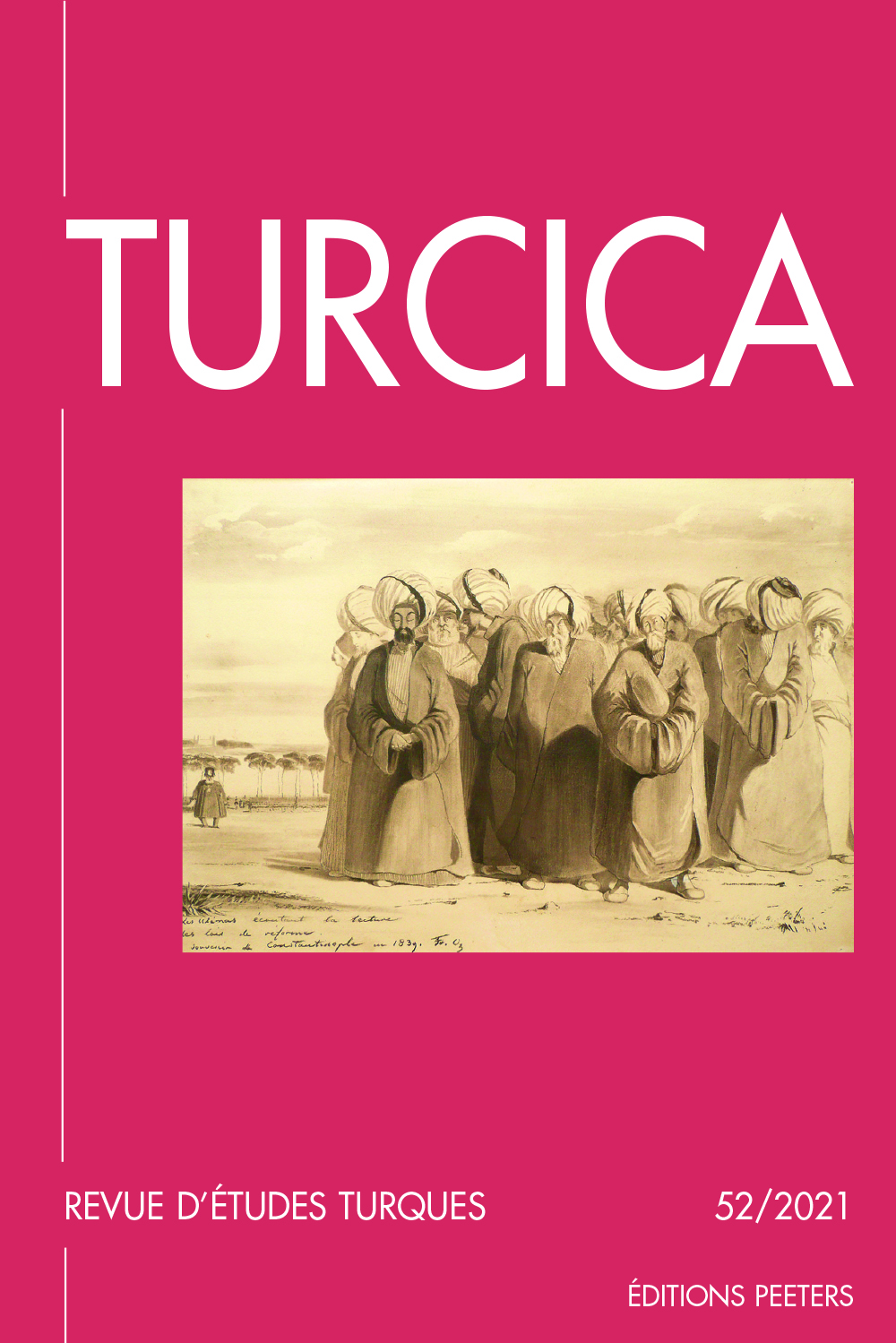 previous article in this issue previous article in this issue | next article in this issue  |

Preview first page |
Document Details : Title: 'Let's Learn Turkish' Subtitle: A Turkish-Arabic Glossary from the Cairo Genizah Author(s): ARAD, Dotan Journal: Turcica Volume: 48 Date: 2017 Pages: 451-473 DOI: 10.2143/TURC.48.0.3237147 Abstract : This article discusses a Judeo-Arabic accounting book composed by a Jew who, it appears, served as an agent of one of the European consuls in Egypt. The accounting book, which seems to have been written in the 1560s, contains primarily lists of products bought by the agent and various other accounting notes; however, some of its pages contain a unique text – an Arabic-Turkish glossary composed by the agent, written in Hebrew letters. This glossary reflects the interest displayed by the Jews of the Ottoman Empire in the Turkish language, an interest driven by both cultural and economic motives. In the past the accepted assumption has been that the Jews of the Empire spoke only Ladino or Arabic and had no command of Turkish. Studies published in the past few decades have disproven this assumption and exposed the deep involvement of the Jews of the Empire in Ottoman culture, and the command many of them – primarily men – had over the Turkish language. The finding discussed in this article joins previous findings on this topic, and teaches us that the interest in the Turkish language was not limited to member of the Jewish elite (doctors, courtiers, etc.), but can also be clearly identified amongst members of the Jewish middle class. Cet article traite d’un carnet de comptes en judéo-arabe qui a probablement appartenu à un agent consulaire en Égypte dans la seconde moitié du XVIe siècle. Il contient des listes de produits achetés et toutes sortes de relevés comptables. Mais quelques pages sont consacrées à un glossaire arabo-turc rédigé en caractères hébraïques. Nous avons ainsi la preuve de l’intérêt d’ordre culturel et économique certain que portaient les juifs de l’Empire ottoman à la langue turque. Par le passé, la thèse dominante était que les juifs ottomans parlaient le ladino et l’arabe, mais pas le turc. Cependant des recherches publiées ces dernières décennies ont montré que les juifs vivant dans l’Empire participaient de façon active à la scène culturelle ottomane et possédaient, du moins pour beaucoup d’entre eux, une maîtrise indéniable de la langue turque. C’était surtout vrai pour les hommes. La trouvaille analysée dans cet article en confirme de précédentes et révèle l’intérêt des juifs pour la langue turque, non seulement dans la classe supérieure (les médecins ou les juifs de Cour par exemple), mais aussi dans la classe moyenne. |
 |


